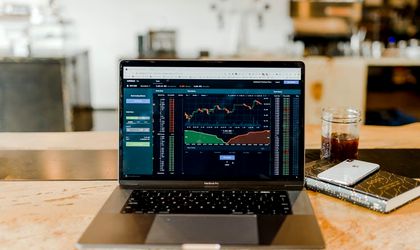
To make trading more enjoyable and efficient, forex traders can use tools that allow them to trade. These tools provide information on the market's movement, traders' feelings about it, as well as who is trading. They let traders see how their strategies can help them improve their results. These tools can help traders avoid common mistakes. These tools are beneficial for everyone, from novice traders to seasoned traders.
Traders can use a forex economic calendar to identify significant events and understand how they might affect the market. This tool can also be used to predict volatility. It lists all events that are likely to affect the market during the week and shows which currencies will be most affected. It can be used to help traders generate trading ideas.
Another useful tool is the time zone converter. This tool allows market participants and traders to convert time between different times zones. This is useful in predicting volatility. The market also tends to be more volatile when the European markets are open. The time zone can also affect the exchange rate for a currency pairing. This tool can help you plan leveraged trades.

Forex indicators allow traders to determine when the market's overbought/oversold levels. These indicators can also help identify when a trend may be ending. These tools can be used to help traders know when to enter and when to close a trade.
Traders keep track of trades by keeping trading journals. These journals can either be kept in a notebook of Excel. These journals can be kept in a notebook or using Excel. They can also provide negative statistics such as losing trades. Traders can see which strategies are most profitable and which ones are not. This can help traders improve their trades by eliminating the strategies that are not profitable.
A Forex sentiment widget is a tool that uses machine learning technology to present insights intuitively. It uses millions of news articles to provide traders with a wealth of information about market sentiment. It is part in the Premium Analytics portal.
A Forex heat map is another tool that can prove to be very useful. This tool shows the currency pairs in the Forex market and helps traders visualize the scale of movement. Heat maps can also be used to identify new trading ideas.

This tool allows traders to identify the currency pairs with the highest potential payouts. It can also help determine the highest and lowest losses with a currency pair. This can also be useful for traders who want to ride a trend in a single direction.
The currency correlation matrix allows traders to see the relationship between different currency pairs. It can be used to help traders identify the currency pair that is most volatile or has the highest potential for losses.
Another tool that helps traders is a profit calculator. A profit calculator is a tool that traders can use to determine how much potential gain or loss they can expect from a currency pair. This calculator can be used to help traders calculate the best risk/reward mix for their trading strategy.
FAQ
Who can trade on the stock market?
Everyone. Not all people are created equal. Some people are more skilled and knowledgeable than others. They should be rewarded.
There are many factors that determine whether someone succeeds, or fails, in trading stocks. For example, if you don't know how to read financial reports, you won't be able to make any decisions based on them.
These reports are not for you unless you know how to interpret them. You need to know what each number means. You must also be able to correctly interpret the numbers.
You'll see patterns and trends in your data if you do this. This will help you decide when to buy and sell shares.
You might even make some money if you are fortunate enough.
How does the stockmarket work?
A share of stock is a purchase of ownership rights. A shareholder has certain rights over the company. He/she can vote on major policies and resolutions. He/she can seek compensation for the damages caused by company. He/she may also sue for breach of contract.
A company can't issue more shares than the total assets and liabilities it has. It's called 'capital adequacy.'
A company with a high capital sufficiency ratio is considered to be safe. Companies with low ratios are risky investments.
Why is a stock called security.
Security is an investment instrument, whose value is dependent upon another company. It can be issued as a share, bond, or other investment instrument. The issuer promises to pay dividends and repay debt obligations to creditors. Investors may also be entitled to capital return if the value of the underlying asset falls.
What is a Stock Exchange?
Stock exchanges are where companies can sell shares of their company. Investors can buy shares of the company through this stock exchange. The market sets the price for a share. It is usually based on how much people are willing to pay for the company.
The stock exchange also helps companies raise money from investors. Investors invest in companies to support their growth. Investors purchase shares in the company. Companies use their funds to fund projects and expand their business.
A stock exchange can have many different types of shares. Others are known as ordinary shares. These are the most commonly traded shares. Ordinary shares are bought and sold in the open market. The prices of shares are determined by demand and supply.
Other types of shares include preferred shares and debt securities. Priority is given to preferred shares over other shares when dividends have been paid. The bonds issued by the company are called debt securities and must be repaid.
What's the difference between marketable and non-marketable securities?
The key differences between the two are that non-marketable security have lower liquidity, lower trading volumes and higher transaction fees. Marketable securities, on the other hand, are traded on exchanges and therefore have greater liquidity and trading volume. Marketable securities also have better price discovery because they can trade at any time. This rule is not perfect. There are however many exceptions. Some mutual funds, for example, are restricted to institutional investors only and cannot trade on the public markets.
Marketable securities are less risky than those that are not marketable. They generally have lower yields, and require greater initial capital deposits. Marketable securities can be more secure and simpler to deal with than those that are not marketable.
A large corporation may have a better chance of repaying a bond than one issued to a small company. The reason is that the former is likely to have a strong balance sheet while the latter may not.
Because they can make higher portfolio returns, investment companies prefer to hold marketable securities.
What is the trading of securities?
The stock exchange is a place where investors can buy shares of companies in return for money. In order to raise capital, companies will issue shares. Investors then purchase them. Investors can then sell these shares back at the company if they feel the company is worth something.
Supply and demand determine the price stocks trade on open markets. The price goes up when there are fewer sellers than buyers. Prices fall when there are many buyers.
You can trade stocks in one of two ways.
-
Directly from company
-
Through a broker
What is the role and function of the Securities and Exchange Commission
The SEC regulates securities exchanges, broker-dealers, investment companies, and other entities involved in the distribution of securities. It enforces federal securities regulations.
Are bonds tradeable
Yes, they do! Like shares, bonds can be traded on stock exchanges. They have been doing so for many decades.
They are different in that you can't buy bonds directly from the issuer. They can only be bought through a broker.
This makes it easier to purchase bonds as there are fewer intermediaries. This also means that if you want to sell a bond, you must find someone willing to buy it from you.
There are many kinds of bonds. Some bonds pay interest at regular intervals and others do not.
Some pay interest quarterly while others pay an annual rate. These differences make it easy to compare bonds against each other.
Bonds are a great way to invest money. In other words, PS10,000 could be invested in a savings account to earn 0.75% annually. The same amount could be invested in a 10-year government bonds to earn 12.5% interest each year.
If you put all these investments into one portfolio, then your total return over ten-years would be higher using bond investment.
Statistics
- Individuals with very limited financial experience are either terrified by horror stories of average investors losing 50% of their portfolio value or are beguiled by "hot tips" that bear the promise of huge rewards but seldom pay off. (investopedia.com)
- US resident who opens a new IBKR Pro individual or joint account receives a 0.25% rate reduction on margin loans. (nerdwallet.com)
- For instance, an individual or entity that owns 100,000 shares of a company with one million outstanding shares would have a 10% ownership stake. (investopedia.com)
- Ratchet down that 10% if you don't yet have a healthy emergency fund and 10% to 15% of your income funneled into a retirement savings account. (nerdwallet.com)
External Links
How To
How do I invest in bonds
An investment fund, also known as a bond, is required to be purchased. They pay you back at regular intervals, despite the low interest rates. You can earn money over time with these interest rates.
There are many ways you can invest in bonds.
-
Directly buying individual bonds
-
Buy shares from a bond-fund fund
-
Investing with a broker or bank
-
Investing through financial institutions
-
Investing via a pension plan
-
Directly invest with a stockbroker
-
Investing in a mutual-fund.
-
Investing via a unit trust
-
Investing using a life assurance policy
-
Investing in a private capital fund
-
Investing via an index-linked fund
-
Investing in a hedge-fund.